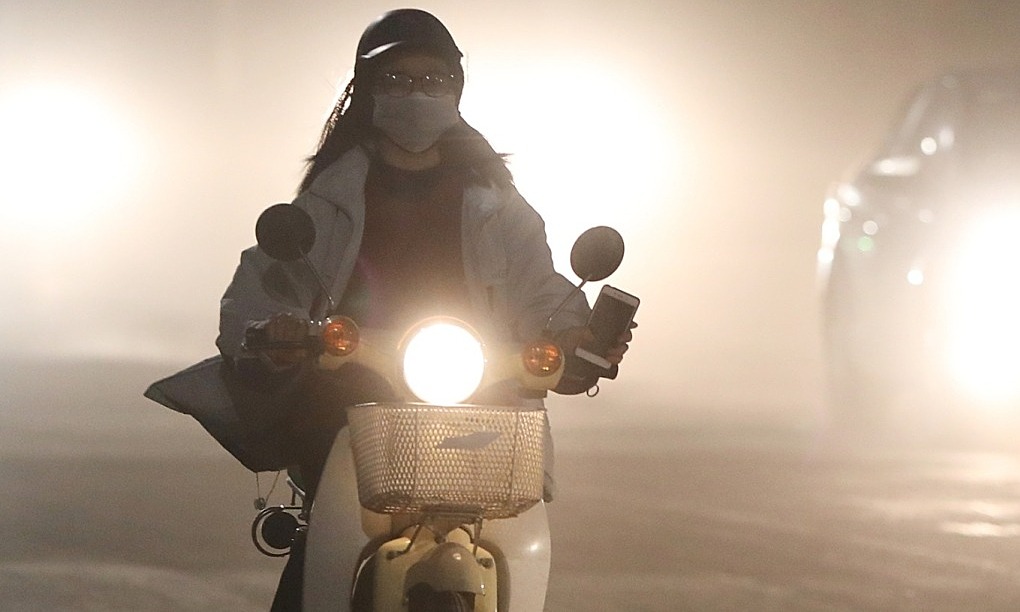Foreigners Escape Hanoi's Toxic Air Quality

The Struggle for Clean Air in Hanoi
William Gray packed up his belongings and left Hanoi, unable to endure the city's "thick exhaust fumes and burning plastic stench." After eight years living in the capital, the 38-year-old Briton made the tough decision to move his family to Hoi An at the end of 2024. His experience was not unique—many residents have faced similar challenges due to the city’s worsening air quality.
The idea of leaving came after a particularly harrowing moment when he spent half an hour stuck in traffic on a bridge in Ha Dong Ward. The air was so thick with pollution that it made him gag and feel suffocated. “Life in Hanoi would be perfect if not for the pollution,” he said wistfully.
Gray's daily commute involved crossing Long Bien Bridge, where the smell of burning plastic from trash near construction sites was constant. During rush hour, he was trapped in exhaust fumes that worsened his health. His wife, a Hanoi native, struggled with respiratory infections and persistent coughs. They tried relocating to Gia Lam, hoping for cleaner air, but the pollution remained, and their health deteriorated as the air quality index (AQI) reached unhealthy levels.
After careful consideration, they decided to leave Hanoi. Now, Gray flies into the city several times a month for work, but in Hoi An, he wakes up to fresh air and the scent of pine and straw. On weekends, he takes his children to the beach, finding a better quality of life away from the city’s smog.
Hanoi has consistently ranked among the world’s most polluted cities. In January, it was listed as the 10th most polluted city globally, with PM2.5 levels often reaching unhealthy levels. Over 40% of the population is exposed to PM2.5 concentrations twice the safe limit. According to data from the Global Burden of Disease research program, deaths linked to PM2.5 in Vietnam rose from over 26,000 in 1990 to 42,000 in 2015.
Sumeet Saksena, a senior researcher at the East-West Center in Honolulu, has studied Hanoi’s air pollution for 16 years. He estimates that air pollution in Vietnam cuts life expectancy by about 1.4 years. Children, the elderly, and those with chronic illnesses are most at risk.
“Some people have moved because of poor air quality. Many others want to but cannot due to financial and social barriers,” Saksena explained. A survey by VnExpress found that 27% of readers had moved to avoid Hanoi’s pollution, while 58% wanted to but lacked the means. If pollution continues, migration will increase, potentially harming foreign investment and economic development, he warned.
Personal Stories of Migration
Tamara Hoffman, a South African expatriate, found it difficult to leave Hanoi, where she had built friendships and memories over nearly a decade. She made the decision after being diagnosed with pneumonia twice in one year, with doctors attributing her illness to pollution. “I moved from China to Vietnam in 2017 to get cleaner air. But again I had to leave for the same reason,” she said.
Nine of her closest friends, also foreigners, had left Hanoi to protect their children from pollution. It took Tamara more than a year to relocate to HCMC, where she now enjoys outdoor activities like swimming and playing sports. She sold her air purifiers and deleted pollution-tracking apps, noting a significant improvement in her health.
Not all foreigners flee the pollution. Some install air filtration systems, stay indoors during high AQI levels, or move to greener neighborhoods on the outskirts of the city.
Steps Toward Improvement
Saksena believes Hanoi must act quickly to curb pollution. Banning gasoline motorbikes in the city center from 2026, expanding affordable electric vehicle options, and improving public transport are positive steps. Strict waste management is essential to prevent illegal trash burning, he added.
He also suggests supplementing real-time air quality monitoring with public alerts and citizen science programs to help residents track exposure. “Hanoi needs more green spaces and ventilation corridors, along with policies to help people switch to clean transport. That is the only way to retain both foreigners and locals.”

Comments
Post a Comment